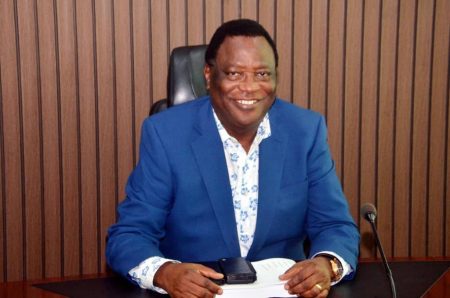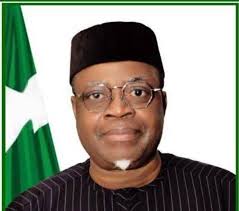
Oscarline Onwuemenyi
28 September 2017, Sweetcrude, Abuja – A research and development council will be constituted for the oil and gas industry and it will integrate research initiatives of stakeholders and steer them towards achieving tangible and beneficial outcomes, the Executive Secretary, Nigerian Content Development and Monitoring Board (NCDMB), Engr. Simbi Wabote has said.
He stated this in Lagos at the maiden Nigerian Oil and Gas Research and Development Fair and Conference, adding that members of the council will include representatives of operating and service companies, relevant agencies of government, the academia, Nigerian University Commission and top research centres in the country.
He said that research and development (R&D) efforts by stakeholders needs to offer real value and relevance to the oil and gas industry so that companies would support and fund them.
He said the Board would change the framework of executing and funding research in the industry, noting that R&D would henceforth form part of deliverables on projects. “R&D will be treated like capacity building initiatives and we will close gaps. The Board will fund good research projects; companies could also be asked to take up research ideas and fund. We want quick wins and such research must solve problems and get to deployment stage.”
He assured that oil industry’s research interventions would be very focussed and devoid of distractions. “We will deal with this the same way the oil and gas industry deals with its business.”
Speaking further, Wabote said “the Board will establish research clusters covering engineering studies, geological and physical studies, local material substitution and technology adaptation in four universities in Nigeria.
He added, “We will utilise Fairs like this to identify top-5 research presentations for development finance consideration by the operators and other government agencies. Already, we have selected five foremost researchers in the oil and gas sector that shall be awarded a pilot grant of N56million. This will assist in developing their inventions further to commercially acceptable standard products.”
The Executive Secretary identified R&D as one of the key elements needed for an enduring Local Content development, listing other elements to include the existence of regulatory framework and capacity building. Other elements are structured capacity building, periodic gap analysis and provision of funding and incentives.
He regretted that Nigeria currently face many pressing R&D challenges, including inadequate facilities and infrastructure, weak framework for protection of intellectual property; lack of funding and low technological development and inadequate educational infrastructure and curriculum to support and foster innovation in our higher institutions.
Other challenges include inability to retain most of the best brains in-country and inability to employ or re-integrate those sponsored by government on scholarships to apply knowledge acquired.
In his speech, the Minister of State for Petroleum Resources, Dr. Emmanuel Ibe Kachikwu, represented by his Senior Technical Adviser, Mr. Gbite Adeniji, stated that the Nigerian Oil and Gas Industry had operated for about 60 years but adequate attention was previously not paid to developing local research capabilities.
He commended the Board for taking steps to implement aspects of the Nigerian Content Act that have do with R&D.
“This is important because of the huge importance of R&D in any growing economy; the amount of capital flight from the R&D activities and enormous benefits of domesticating industry research and the impact on other critical sectors of the economy,” he said.
Chairman Senate Committee on Upstream, Senator Tayo Alasoadura, who represented the President of the Senate, Dr. Bukola Saraki, stated that developments in the global oil and gas industry in the past three years made it imperative for stakeholders to indigenize research and development capabilities.
In his goodwill message, the Managing Director of Schlumberger and Secretary of the Petroleum Contractors Trade Section (PCTS), Mr. Ifeanyi Nwagbogu explained that R&D initiatives globally had been extended to include demonstration and deployment.
He stressed the need to demonstrate and deploy most of the research that had been conducted in the Nigerian oil and gas industry. “We need to convert our R&D to tangibles that can be useful in the market.”
He said Schlumberger collaborates with the R&D Division of the Nigerian National Petroleum Corporation (NNPC), adding that his company took two samples to the NNPC’s Laboratory for analysis, two months ago, rather than taking them abroad.



